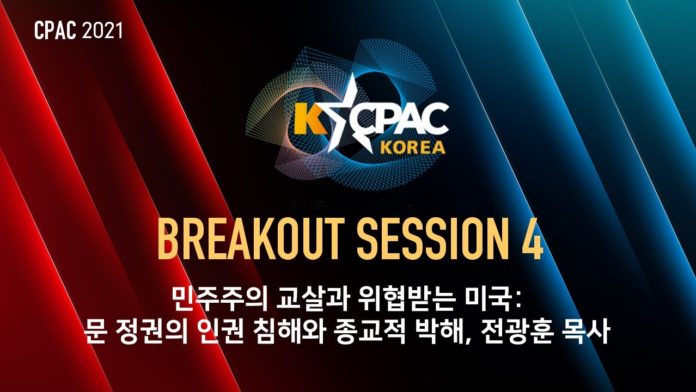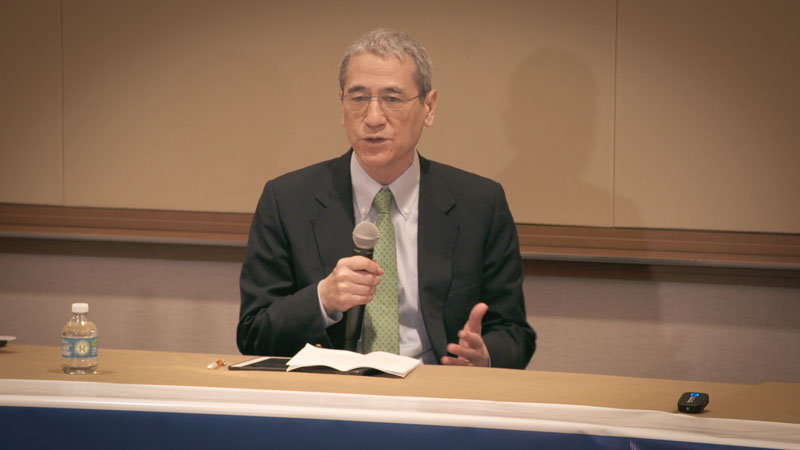CPAC/KCPAC 2021 “Breakout Session” Panel —
“Love and Hate Relations Between China and North Korea:
A Threat to America?”
Panelists:
Ri Jong Ho, former elite North Korean official, and second highest ranking defector
Brig. Gen. Robert Spalding, USAF (retired), former US National Security Council official, and author of Stealth War: How China Took Over While America’s Elite Slept
Gordon Chang (moderator), author of The Coming Collapse of China and Losing South Korea
Rep. Doug Lamborn, Republican Congressman from 5th district of Colorado
This panel discussion focused on the relationship between the Chinese and North Korean regimes and its impact on the U.S.
Gen. Spalding noted that the Chinese Communist Party poses an existential threat to the U.S. and that North Korea is a subset of that Chinese threat, but of a lesser magnitude.
Mr. Ri said that his decision to defect from North Korea in 2014 was motivated by Kim, Jong Un’s execution of his uncle, Chang Seong Taek, by the execution of some of Mr. Ri’s close friends, and by the sending of thousands of others to concentration camps as part of the purge of Chang, which caused a heightened sense of fear in North Korean society. Ri also feared that he would be executed due to his having worked on some projects with Chang.
In response to Gordon Chang’s question about Mr. Ri’s work for North Korea’s Office 39 in China, Mr Ri explained that he worked for Office 39 for nearly two decades, and that it was in charge of building a slush fund for Kim Jong Un and overseas purchasing of luxury goods for Kim’s use.
Rep. Lamborn stated that he, and the House Armed Services Committee of which he is a member, are concerned about the threat posed to America by North Korea’s development of ICBMs which can reach the U.S. He stressed that North Korea would become an existential threat to the U.S. when it completes its ability to strike the U.S. with nuclear weapons. The way to counter this emerging threat, he said, was to continue to develop and modernize missile defense capabilities. He added that North Korea is obtaining weapons technology from China and engaged in the overseas proliferation of weaponry to earn cash, in addition to expanding its conventional military capabilities.
In response, Gordon Chang emphasized the point that North Korea is therefore emerging as a threat to the American homeland, and Mr. Ri noted that he believes China has been assisting North Korea’s weapons development, and that China is trying to manage or control North Korea. Gen. Spalding noted that the U.S.-South Korea relationship is important in this context because the U.S. deters North Korea by extending a nuclear umbrella over South Korea.
Mr. Ri said that in general, North Koreans are envious of South Koreans because its alliance with the U.S. has enabled it to develop and become a prosperous nation. He added that North Koreans were living in poverty due to their socialist system, as opposed to the successful free market system in South Korea. He further noted that everything that North Koreans are taught about South Korea is false, such as the claim that the South seeks to invade the North. Asked to explain why he left South Korea to live in the U.S., Mr. Ri stressed that he was very worried about the political situation in South Korea, especially since North Korean agents and pro-North Korean elements were active in the South and posed a threat to the safety of him and his family.
Gordon Chang stated that Lawrence Peck, an expert on pro-North Korean forces in the U.S., had reminded him that it is important to remember that North Korea is not only operating on the Korean peninsula, but also operating in the U.S, in the form of pro-North Korean groups and lobbyists that are active here and attempting to influence the U.S. government and the American public. Gordon Chang further noted that Lawrence Peck has shown that some pro-North Korean elements in the U.S. have indeed unfortunately been able to deeply influence a number of American figures with what he characterized as their crazy ideas of appeasing North Korea.
Mr. Ri noted that although both elites and ordinary North Koreans, as any other people, would like to live in freedom with prosperity, they have been unable to do so for over 70 years due to the oppressive dynastic rule of the Kim family, which has deified itself and compelled society to worship it in order to control the North’s isolated populace. He stressed that the only way to change this situation is to finally rid North Korea of the Kim dictatorship.
On the issue of the funneling of foreign currency into North Korea via China, Mr. Ri explained that Kim Jong Un is using such funds not to improve the lives of the North Korean people, but rather to further his nuclear ambitions. He added that the North also earns foreign currency through hacking and other cyber crimes, and that North Korea has many thousands of laborers working overseas, in slave-like conditions, who are a source of funds for the regime. Mr. Ri further pointed out that some of the enhanced sanctions imposed on North Korea by President Trump had been effective in cutting-off some of these sources of funds. Secondary sanctions imposed by the U.S. against Chinese companies doing business with North Korea, he said, were also very important in this regard.
Rep. Lamborn concurred that President Trump had shown backbone in imposing and enforcing meaningful sanctions on North Korea, which the U.S. should also do with regard to Iran, including the enforcement of sanctions on sanctioned cargo destined for North Korea on the high seas. Gen. Spalding also noted that a solution to the funneling of funds to North Korea via China was to sanction the Chinese banks involved, which Gordon Chang agreed was critical. However, Gen. Spalding pointed out that corporate lobbyists were opposed to such measures, and that the root of this problem was China’s support for North Korea.
Mr. Ri said that although North Korea and China share a socialist system and may outwardly appear to be very friendly with one another, internally there are extreme resentments and even hatred towards China among many North Koreans, due to China’s historical role in Korea and its distortions of Korean history.
Rep. Lamborn stated that President Biden’s statement appearing to dismiss and downplay China’s brutal repression of its Uyghur minority population, and its suppression of pro-democracy forces in Hong Kong, as being cultural norms, was truly disgraceful.
Mr. Ri pointed out that Kim Jong Un views human rights criticism as an attack upon his regime’s basic system, which requires a hardline response against such critics. Mr. Ri strongly emphasized that the response of the outside world must be to increase pressure on North Korea over its extremely serious human rights abuses, and that this would in turn create useful leverage against the North with regard to the nuclear issue. As a specific example of why international pressure on North Korea is so very important, Mr. Ri noted that former dictator Kim Jong Il, in response to international human rights criticism in the early 2000s, had ordered a temporary and partial relaxation of the harshest prison conditions.
General Spalding commented that totalitarian regimes often unfortunately have a certain longevity, and that there was a problem with the willingness of many American institutions to cooperate with the Chinese Communist Party.
In conclusion, Mr. Ri observed that after President Trump met with Kim Jong Un, internal North Korean propaganda portrayed such meetings as demonstrating U.S. acceptance of the North’s status as a nuclear power. He also stressed that the only reasons that Kim agreed to such meetings was to attempt to reduce the U.S. military presence in South Korea and to relax U.S. sanctions on North Korea.








